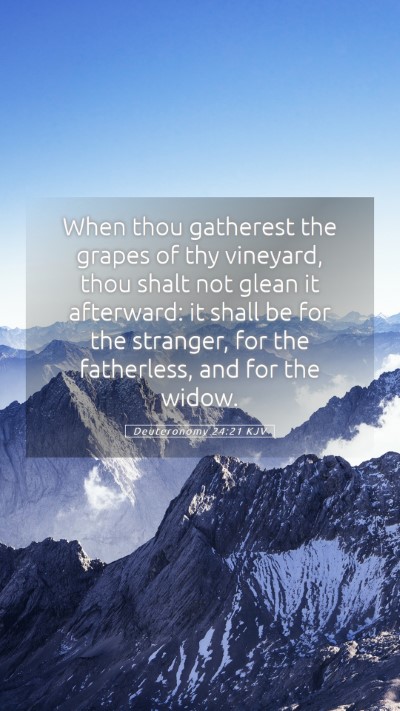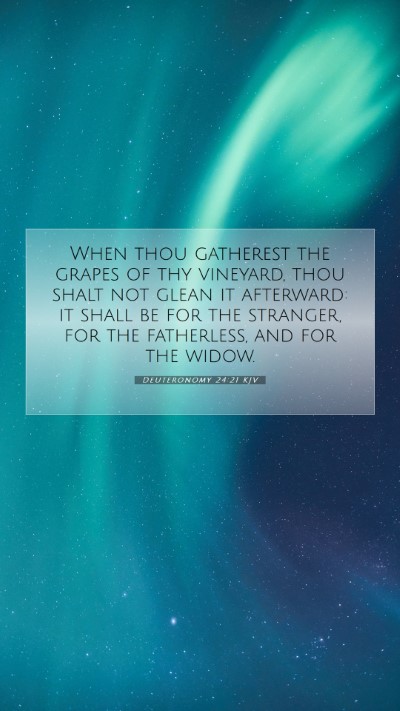Understanding Deuteronomy 24:21
“When you gather the grapes of your vineyard, you shall not glean it afterward: it shall be for the stranger, for the fatherless, and for the widow.”
Bible Verse Meanings and Interpretations
This verse emphasizes the importance of providing for the less fortunate in society. Through the act of not harvesting the corners of the vineyard and leaving behind gleanings, the commandment reflects a core aspect of God's justice and mercy.
Historical Context
In ancient Israel, agriculture was the primary means of sustenance. Laws like those in Deuteronomy were designed to promote social justice, protect vulnerable groups, and ensure that everyone, including the poor and marginalized, had access to food.
Bible Study Insights
- Provision for the Needy: The instruction symbolizes God’s care for the stranger, the fatherless, and the widow, often representing those who are most vulnerable in society.
- Social Responsibility: This verse requires landowners to consider their social responsibility, highlighting a principle that transcends mere legality into moral obligation.
- Spiritual Significance: Beyond the physical provision, this verse suggests a spiritual application of generosity and compassion in our lives.
Commentary Analysis
According to Matthew Henry's commentary, the act of leaving grapes unharvested serves as an illustration of God's grace and concern for all His creation. It is a reminder that material wealth is never solely for one's personal use but is to be shared with others. Albert Barnes notes that this law fosters an attitude of sharing and highlights God’s concern for the marginalized in society. Adam Clarke emphasizes this welfare legislation as crucial for maintaining a compassionate community and upholding divine justice.
Applying Bible Verses to Daily Life
Understanding such principles encourages modern readers to examine how they treat the less fortunate. Individuals and communities are challenged to adopt practices that mirror the divine concern for justice through their interactions and relationships.
Additional Cross References
- Leviticus 19:9-10: Similar instruction about gleaning and providing for the poor.
- Ruth 2:2-3: The story of Ruth highlights the practical application of gleaning in Jewish law.
- James 1:27: Emphasis on the importance of caring for orphans and widows, resonating with the themes in Deuteronomy 24:21.
This verse serves as a foundational element in understanding God's heart for social justice and the need for His followers to address the needs of others around them.
Conclusion
Deuteronomy 24:21 encapsulates vital principles regarding the treatment of others, particularly society's vulnerable. Engaging with this verse offers a means to reflect on one’s actions in light of scripture, prompting personal and community growth in the practice of compassion and generosity.


